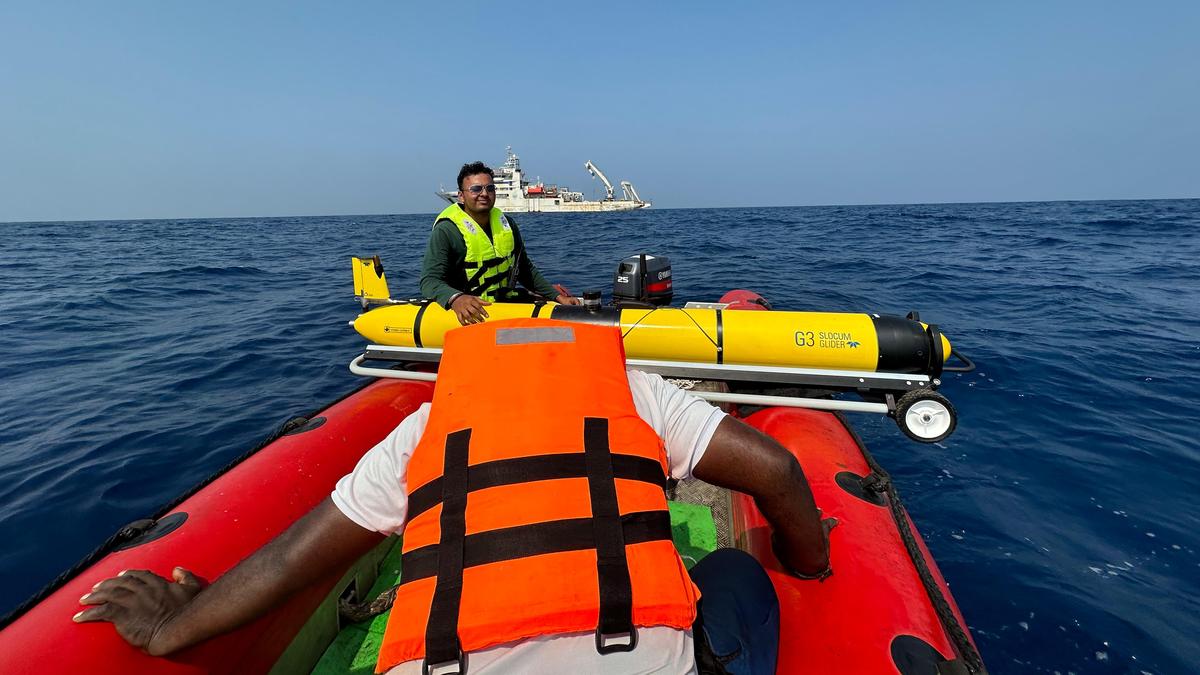
INCOIS, NCPOR to launch a glider to study Antarctic ocean
The Hindu
INCOIS and NCPOR to launch glider in Antarctica for ocean research, part of MoES Deep Ocean Mission.
Indian National Centre for Ocean Information Services (INCOIS) together with the National Centre for Polar and Ocean Research (NCPOR) will be launching a glider near the country’s research station ‘Bharati’ at Antarctica to study the sea temperatures, salinity and geochemical process in the ice cold region.
Director of Hyderabad-based INCOIS T. Srinivasa Kumar informed that the plan is to launch the glider sometime next year when the next Indian scientific research team embarks on the expedition to the cold continent. It is part of the new-age ocean observing platforms ‘Gliders’, as part of the Ministry of Earth Sciences (MoES) ‘Deep Ocean Mission – Ocean Climate Change Advisory Services’.
The data generated from the gliders along with the information coming from the tide gauges, argo floats, buoys and other ocean observing systems are meant to understand the impact of climate change on sea level, cyclonic storms, waves, swell surges and even ocean ecosystems, he explained.
Already, four such gliders of the institute areroaming in the Indian Ocean after being launched in May earlier this year. Two of these ‘slocum’ gliders are moving up and down the Bay of Bengal, about 1,000 km away from the country’s eastern coastline while another two gliders are traversing the Arabian Sea from a similar distance.
These gliders can travel up to 15 km a day, dive to a depth of 1,000-2,000 metres and are operated remotely from the command centre by maneuvreing it both vertically and horizontally at eight centimetres per second.
They surface every 10 days while measuring state of sea parameters like chlorophyll, dissolved oxygen, salinity, temperatures and others with help of the latest biogeochemical sensors. While the basic data is transmitted in real time when the gliders surface four-five times a day, the more exhaustive information can be obtained when the battery has to be replaced after nine months.
“We go by our research ship to physically bring back the gliders here for ‘ballasting’ to retrieve data. ‘Ballasting’ is to retrofit gliders suitable for the waters - considering parameters such as salinity and others - in which they are to be deployed,” said Head of Ocean Observations and Data Management Group E. Pattabhi Rama Rao.

Andhra Pradesh CM Chandrababu Naidu inaugurates CNG, PNG projects in Rayalaseema region. Andhra Pradesh has the unique distinction of being the second largest producer of natural gas in India, thanks to the Krishna-Godavari (KG) Basin, he says, adding the State will lead the way towards net-zero economy.










